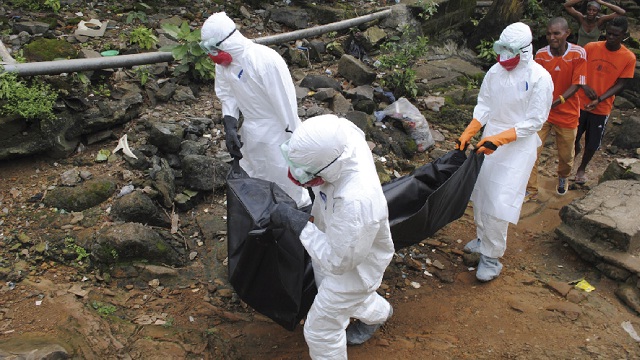
Researchers warn Uganda not ready to handle next health emergency
Kampala, Uganda | FLAVIA NASSAKA | The government response to the 2017 Marburg virus outbreak in Kween District, eastern Uganda cost Shs5.2billion. Most of that money came from donors.
That was one of the revelations made by the Permanent Secretary of the Ministry of Health, Dr. Diana Atwine, during a researchers’ workshop held in Kampala in a late March under the theme, ‘Enhancing national response to health emergencies through research and information sharing’. The lack of government funding for emergency disease outbreaks was cited as one of the signs that Uganda is not well prepared to keep its people safe from the next pandemic. Many experts called out the government to increase the level of emergency response preparedness.
Dr. Harriet Nabudere, the Deputy Director General at the Uganda National Health Research Organisation (UNHRO) geared towards handling public health emergencies need to match the kinds of outbreaks that come up. “They are a reality that we have to deal with,” she said. It all started when Dr. Julius Lutwama who heads the Arbovirology, Emerging and Re-emerging Diseases division at Uganda Virus Research Institute (UVRI) told the meeting that his team keeps picking up new viruses whenever they go out to research.
Sosuga virus, Bukakata virus and Mburo virus; these are some of the viruses that Lutwama and his team have recently found. When he revealed this to the researchers, a mélange of questions followed. Lutwama explained that because they are cataloging threats and are speedily discovering new viruses, even when outbreaks happen they can be easily identified which in turn helps to decrease intensity and length of such outbreaks. Between 2010 and 2017, scientists from the American Centres for Disease Control (CDC) and UVRI identified 16 outbreaks of viral hemorrhagic fevers (VHFs) in an average of 2.5 days down from the twoweek average detection time over the previous 10 years.
While Lutwama said the constant discovery of new viruses by his team should not cause any panic because Uganda has mastered the art of managing health emergencies, many experts warned that the country is not ready to keep its people safe from the next pandemic. They pointed out the Crimean Congo Hemorrhagic fever outbreak which caused confusion when the Ministry denied an outbreak in Nakaseke District, central Uganda, in January even as three people were showing symptoms of pains, high fever, neck stiffness, bleeding, vomiting and another dying as a result.
Other reports showed that by January, nine people had died of the infection by the tick borne virus when the first case was suspected in august last year. Experts are warning that more dangerous viruses to humans could emerge or known ones could change as people move more easily from one place to another; which is partly why dangerous outbreaks are on a rise in Uganda.
While some of the outbreaks go unnoticed, others like Marburg that broke out in October last year caused panic and experts now warn that since such pathogens have potential to cause enormous harm, healthcare managers should be handed with the right tools to fight them off. Crimean Congo fever, for example, is known to occasionally show up in human beings among communities within the cattle corridor. But when it broke out last year, the cattle corridor was already being ravaged by rift valley fever; an equally tough infection.
Dr. Ekwaro Obuku, a researcher who doubles as the president for the Uganda Medical Association, says Uganda needs to set aside budgets to cater for emergencies. Permanent Secretary Atwiine agreed but cautioned that the reality is that emergency response efforts occur in situations of limited budgets. She said, knowing this, her ministry has developed a robust system of surveillance and case management to ensure that responding to outbreaks does not become too costly.
She explained that any delay in detecting an outbreak means more expenditure in managing large numbers of people affected. Uganda has been commended for handling of the outbreak of bird flu. The U.S. Centers for Disease Control and Prevention (CDC) ranks bird flu as one of the diseases with potential to cause a pandemic that goes global. Although it mostly affects birds, the disease had started jumping into humans. But Obuku says even if the bird flu outbreak was tough, Uganda detects outbreaks early and has an effective task force; the outbreak would not have had much impact anyway.
Apparently the H5N8 strain detected in Entebbe and Masaka is believed to be a less disease causing sub type for humans. When it broke out in Uganda last year, other countries like China were battling a tougher strain H7N9. “We are on track as far as managing emergencies is concerned. Even as there was panic with the outbreak of bird flu, the risks for Uganda were not as much anticipated,” said Ekwaro.
 The Independent Uganda: You get the Truth we Pay the Price
The Independent Uganda: You get the Truth we Pay the Price


